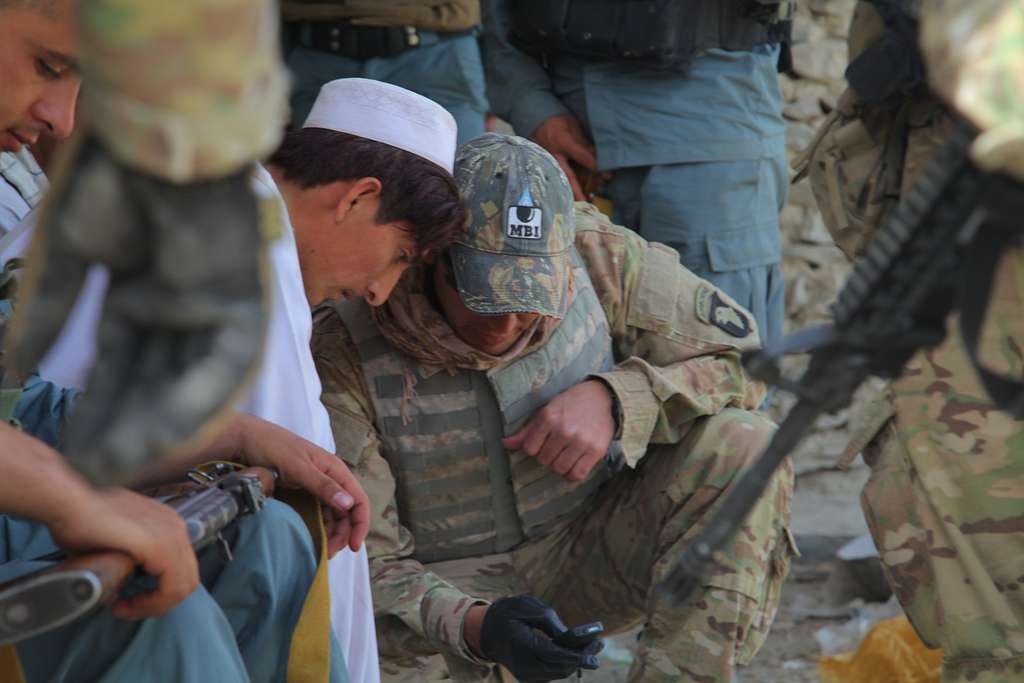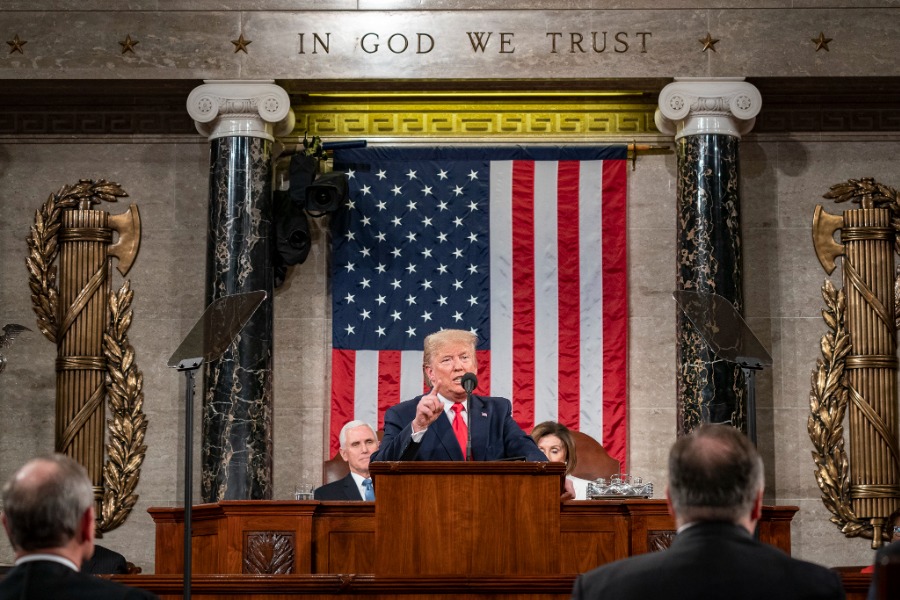Analysis of Senator Paul’s Proposed Declaration of War (and Authorization of Force) Against the Islamic State
Published by The Lawfare Institute
in Cooperation With

Senator Paul has proposed a declaration of war and authorization of force against the Islamic State. A few reflections, drawn in part from an article I wrote a decade ago with Curtis Bradley:
1. The United States has declared war in five armed conflicts in American history: The War of 1812, the Mexican-American War, the Spanish-American War, World War I, and World War II.
2 It’s not clear why Senator Paul wants to make the conflict against the Islamic State the sixth declared war in U.S. history. Perhaps it is because Article I, Section 8 expressly gives Congress the power “To declare war,” and not the power to authorize force. But this alone would not be a good reason. Since at least the Quasi-War in the 1790s, and continuing until today, it has been clear that Congress has the power – perhaps implied in the Declare War clause and surrounding war-related clauses – to authorize the President to use force in the absence of a declaration of war.
3. There is much debate about the original understanding of the Declare War clause, and the role of declared wars at the founding. At least one role for declared wars was probably to trigger various international law rights and duties (of belligerency and neutrality) under international law. But whatever role declared wars served under international law in the 1780s, and whatever the original understanding of the Declare War clause might have been, international law has changed quite a lot. Since World War II, “war” has generally been replaced with concepts like “use of force (in the U.N. Charter) and “armed conflict” (in the Geneva Conventions). In the modern world. it is not clear what if any purpose might be served under international law by a war declaration, and that is perhaps why there have been few if any war declarations in any the hundreds of wars since World War II.
4. Under domestic law, a declaration of war is not a substitute for an authorization of force. Every declared war in U.S. history also contained a congressional authorization for the President to use force. So too does Senator Paul’s. In addition to declaring war against the Islamic State in Section 2(a), Senator Paul also proposes in Section 2(b): “The President is hereby authorized and directed to use the Armed Forces of the United States to protect the people and facilities of the United States in Iraq and Syria against the threats posed thereto by” the Islamic State. This is a narrow authorization of force. Among other things, it authorizes force only in Iraq and Syria and, if I am reading “threats poised thereto” correctly, it does not authorize the President to use force against the Islamic State to protect threats to the American homeland. I am not sure why Senator Paul would want to limit the President’s authorized force to address threats posed to American people and facilities in Iraq and Syria and not to the homeland, and I am not sure whether it matters since the President always has Article II. But the juxtaposition between the full-throated declaration of war in Section 2(a) of Paul’s draft and the very narrow authorization of force in Section 2(b) is strange, and has no precursor in the five earlier declared wars. Among other things, the disjunction between Sections 2(a) and 2(b), and the narrow geographical scope and purposes of the force authorization, highlight that Senator Paul is proposing to use a war declaration in a conflict far different, and much less momentous, than prior U.S. declared wars.
5. What, then, might be added in 2014 by including a declaration of war with an authorization of force against the Islamic State? There are a few old statutes that are triggered by war declarations specifically, see, e.g., 2 U.S.C. § 198(b) (2000) (concerning adjournment by Congress). I doubt that Senator Paul included a war declaration to trigger these statutes. Another possibility is that adding the war declaration to the force authorization might be designed to signal the seriousness of the conflict, at home (to the American people) and abroad (to allies and adversaries). The very oddity of a war declaration might thus serve an educative function, and might spark more serious reflection and debate about the conflict. I speculate that this reason, along with a vague intention to adhere to the text of Article I, is why Senator Paul has proposed a war declaration.
6. Senator Paul’s proposal has other interesting features besides its war declaration and narrow-purpose force authorization. It authorizes ground troops for narrow purposes in Iraq and Syria. It sunsets its declaration and authorization against the Islamic State after one year, it abrogates the 2002 AUMF, and it sunsets the 2001 AUMF after a year. It also expressly states that its authorization of force does not extend to other organizations or to Islamic State affiliates, and it contains a rule of construction that precludes the 2001 AUMF from authorizing force against the Islamic State. If all of these provisions came into force, Congress would either need to reauthorize force against the Islamic State, al Qaeda, and AQ affiliates in a year or the President would have to rely on Article II to fight those threats (and, if the 2001 AUMF was not re-authorized, the President would additionally likely need to release GTMO detainees not scheduled for trial).
7. In sum, the declaration of war element to Senator Paul’s proposal that has received all of the attention serves little functional legal role but might serve to raise awareness about the stakes of the conflict with the Islamic State. The work in Senator Paul’s proposal is done by his narrow and temporally short authorization of force against the Islamic State and his narrow construction and repeal or sunset of prior AUMFs.
Jack Goldsmith is the Learned Hand Professor at Harvard Law School, co-founder of Lawfare, and a Non-Resident Senior Fellow at the American Enterprise Institute. Before coming to Harvard, Professor Goldsmith served as Assistant Attorney General, Office of Legal Counsel from 2003-2004, and Special Counsel to the Department of Defense from 2002-2003.





